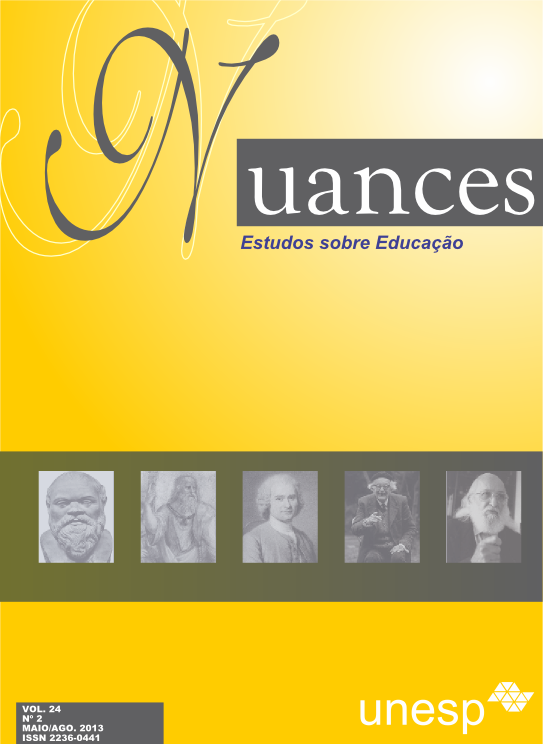A SENSIBILIDADE E A ÉTICA COMO MEDIADORAS NA PRÁTICA PEDAGÓGICA DE UM EDUCADOR MUSICAL
DOI:
https://doi.org/10.14572/nuances.v24i2.2484Keywords:
Music education, Aesthetic consciousness, Development of autonomyAbstract
The central objective of this research – done in a qualitative approach, focussing on a case study – is to propose that musical educators realize a work that better enables the student to reflect, develop his sensibility, think about his own and other people’s behavior and build his own social, moral, and intellectual path. The hypothesis raised was that this becomes possible when the teacher, guided by ethical principles, tries to offer the student an environment propitious to the development of the student’s sensibility and autonomy, whose acquisition presents itself at the same time as condition and product of piano study, in the way that is proposed in this work. The theoretic foundation was searched in the works of Piaget and of the authors who studied the development of autonomy in the child and in the adolescent, considering particularly the active methodology and the school environment, as far as they are responsible for the creation of conditions favourable to the development of the student’s autonomy and aesthetic consciousness. Thus, the study envisages, as a derived and complementary objective, to offer suggestions for a methodology, strategies, and techniques directed to piano teaching, considering the development of autonomy. The analysis and discussion of the results permitted not only to confirm the hypothesis raised, but also to offer the methodological suggestions proposed.
Downloads
Downloads
Published
How to Cite
Issue
Section
License
Atribuição-NãoComercial
CC BY-NC
Esta licença permite que outros remixem, adaptem e criem a partir do seu trabalho para fins não comerciais, e embora os novos trabalhos tenham de lhe atribuir o devido crédito e não possam ser usados para fins comerciais, os usuários não têm de licenciar esses trabalhos derivados sob os mesmos termos.





